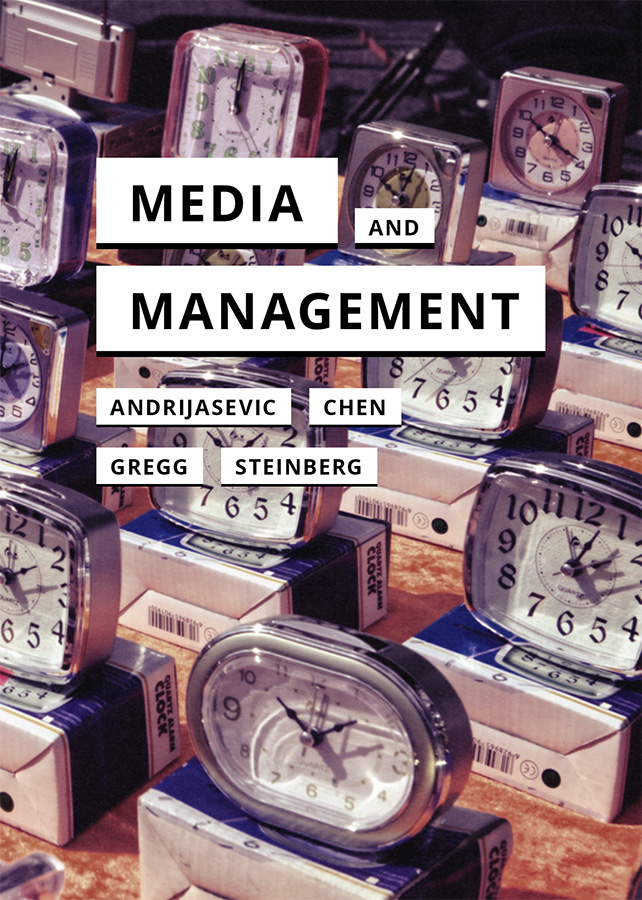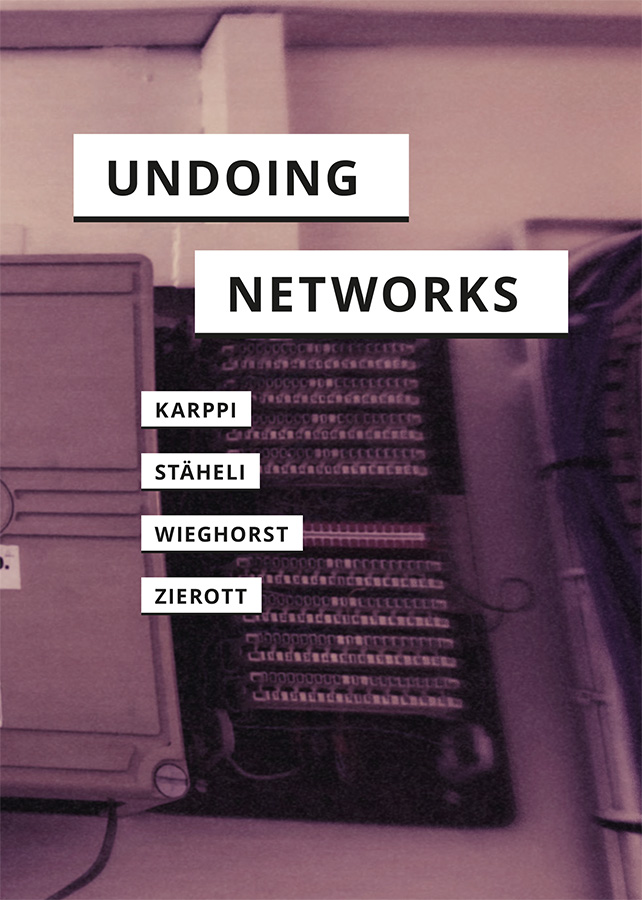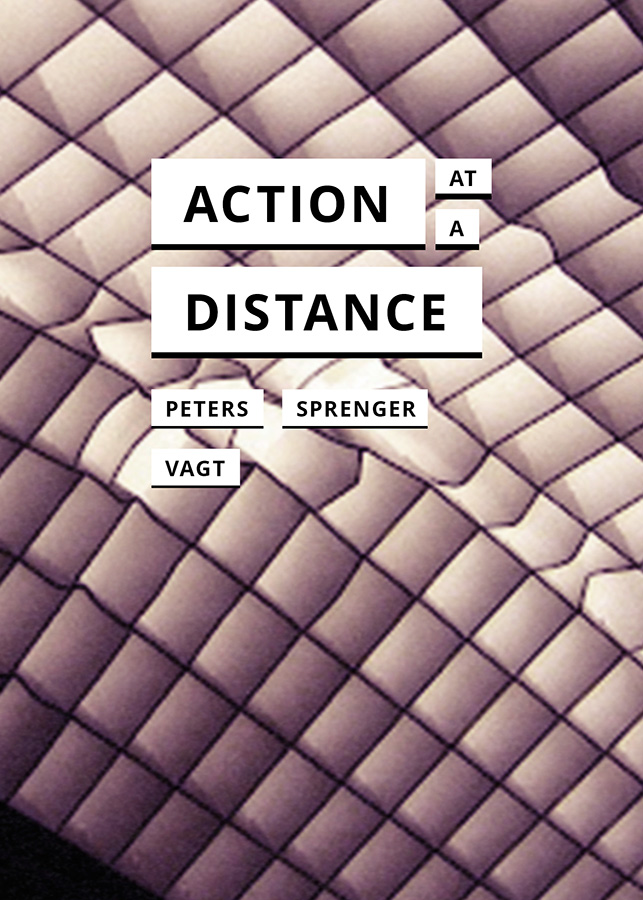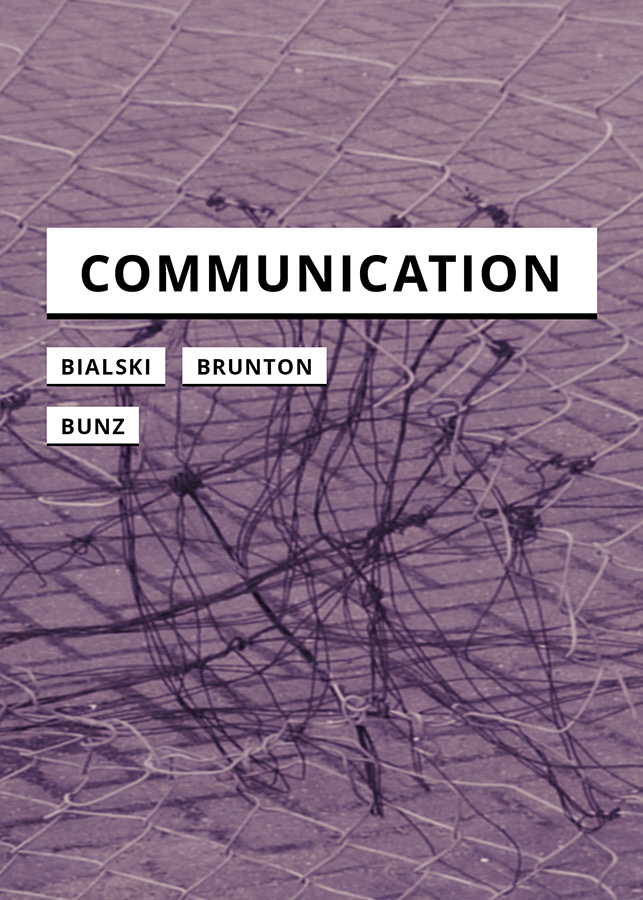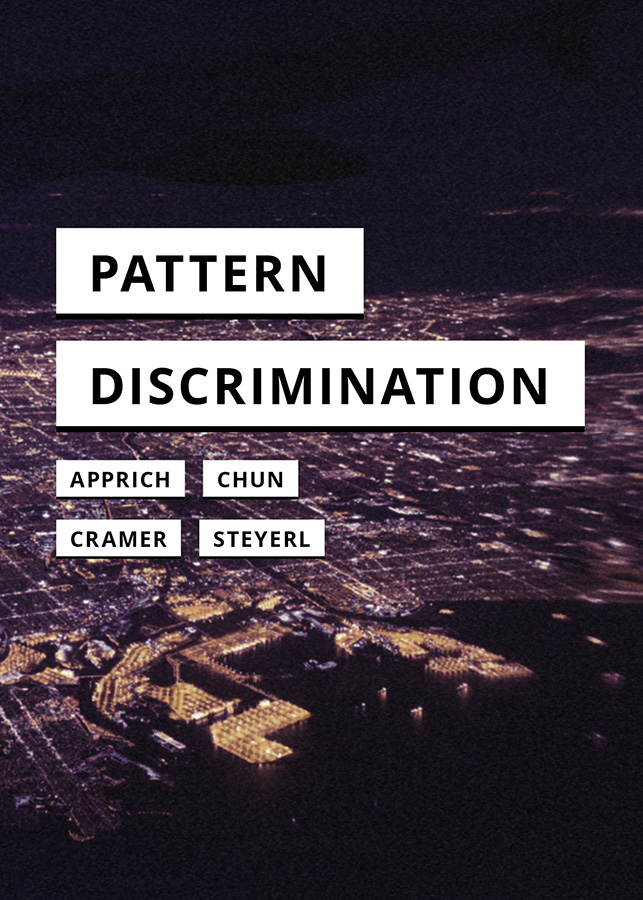Pattern Discrimination
Algorithmic identity politics reinstate old forms of social segregation—in a digital world, identity politics is pattern discrimination. It is by recognizing patterns in input data that Artificial Intelligence algorithms create bias and practice racial exclusions thereby inscribing power relations into media. How can we filter information out of data without reinserting racist, sexist, and classist beliefs?
“Profound and provocative, this book demonstrates the enduring relevance of theory to contemporary digital dilemmas. Addressing platform capitalism, democratic decay, and the future of labor and play, the authors illuminate the alien intelligence of big data, pattern recognition, machine learning, and artificial intelligence.”
— Frank Pasquale, University of Maryland
“How are we to contend with the many forms of pattern discrimination in contemporary life? This book shows the complexity of the terrain and reminds us what is at stake.”
— Kate Crawford, AI Now Institute NYU









